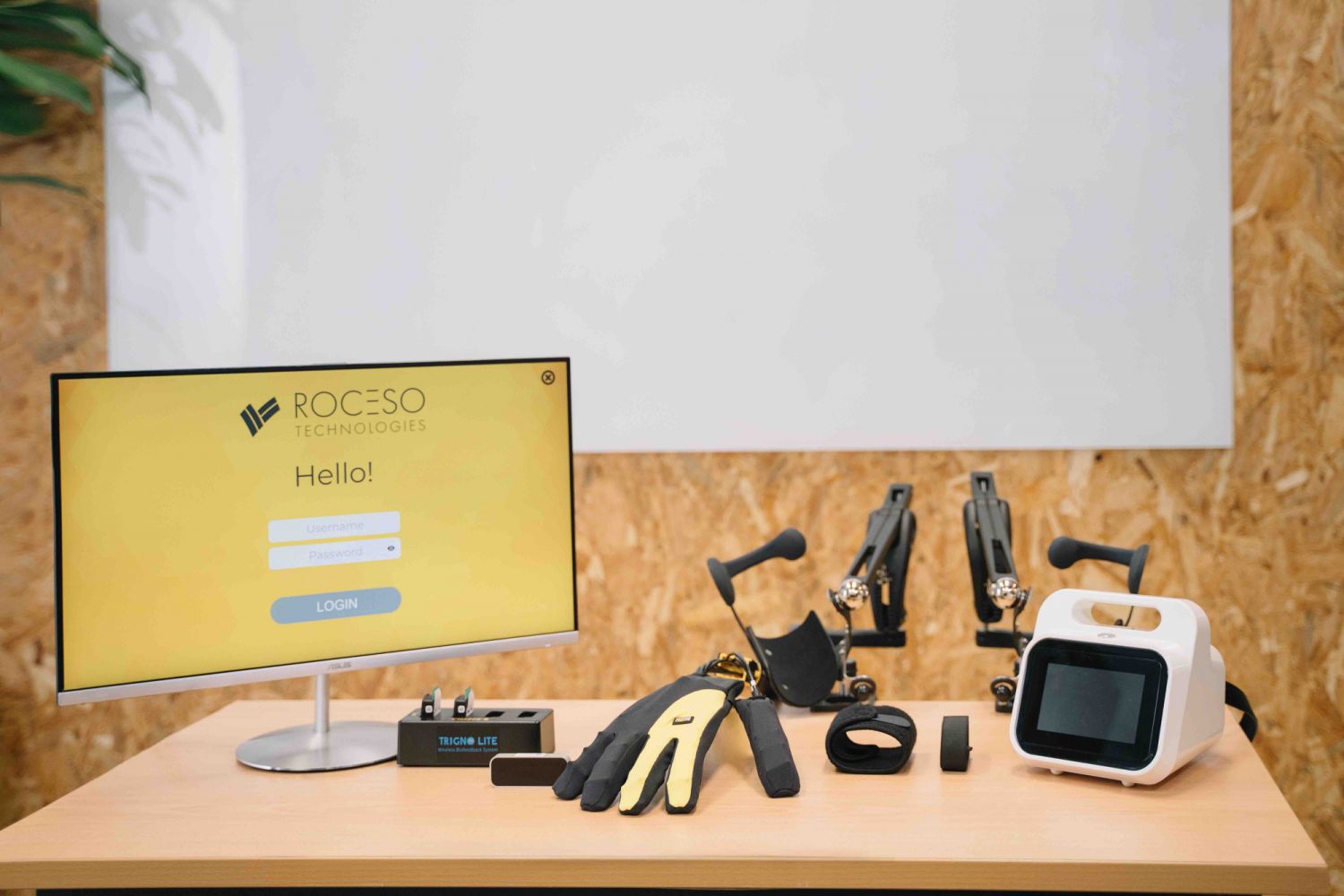The co-founder and CEO of medical device start-up Roceso Technologies on her soft robotics, setting up a clinic to make a difference to rehabilitation patients and supporting other women in the field
Jane Wang was working as a successful management consultant in Singapore and had just purchased her first flat when she handed in her resignation. “I was earning a decent salary, but I decided it was about time to quit,” she says. It was a difficult decision, but she knew she had to take the plunge. Her soft robotics start-up Roceso Technologies had just been accepted into JUMPstart, Singapore’s first major accelerator for medical devices and she needed to focus. The stakes were high as she and her co-founders, Dr. Yap Hong Kai and Dr. Raye Yeow, received $200,000 as well as intensive training to get their company off the ground. Wang’s family members had also contributed to the seed funding. “To be honest none of us had any medical device experience,” she says with a laugh. “But I guess we all learned fast.”
Six years down the line, Roceso Technologies has become one the world’s leading soft robotics companies known for creating EsoGlove, a special fabric glove that helps with patient rehabilitation for those with neurological disorders as well as nerve or tendon injuries. Wang, who is a 2022 Gen.T honouree, says the glove is particularly popular with stroke patients who are partially paralysed and may have limited mobility in their hands, shoulders and elbows. “Traditional robotic technologies use metal or pieces of plastic. They are very rigid and heavy so it's not possible to use them for [nuanced] hand movements,” she says, explaining that fabric is not only safe but also strong enough to allow patients to mobilise individual fingers.”
Wang has just returned from a business trip to Germany where she has a subsidiary and where several major hospitals and clinics have become clients. Today, Roceso products are sold in more than 30 countries. She explains that the landscape of rehabilitation has transformed in recent years and the fact that the glove is lightweight and compact has contributed to its success. “Traditional devices are typically huge and not portable and very expensive,” Wang says. “But, right now in Europe and the US people are talking about continuous care where the whole idea is to have portable devices that can be used in inpatient and outpatient clinics and eventually the home.”

Wang has always been interested in making a difference. When she was younger, she wanted to apply to medical school, but when she received a scholarship to study engineering in Singapore, she switched gears: “I decided to give up the doctor dream, but I was still really passionate about healthcare and creating impact in people’s lives.” After completing her bachelor’s degree in Mechatronics Engineering and Robotics in Singapore she went on to do a master’s in Intellectual Property Management, which was where she hit upon the idea for the start-up and met academics Dr. Yap Hong Kai and Dr. Raye Yeow. After conducting months of research they realised the potential of soft robotics to help with the rehabilitation of disabled people. In 2016 they founded Roceso Technologies, the first and only soft robotics company in Singapore.
More than 100 interviews with doctors, therapists and patients revealed a huge market gap for the rehabilitation of hands. When therapists help move the hands of stroke victims manually, they are limited to basic stretches or to gripping balls and more often than not the focus ends up being on walking and lower limbs. “Therapists aren’t really doing enough hand rehabilitation because there are not enough tools,” says Wang. “A lot of patients are not able to do it in the early stage. After a few years, many realise their hands are getting weaker and they can’t open them anymore. Then they started searching for solutions but oftentimes it’s too late.”
Wang shares the story of a youthful 40-year-old woman who had a stroke more than three years ago and could hardly move one hand. Her father was pushing her to look for solutions and they discovered EsoGlove. Since trying the device, she’s been visiting Wang’s office to use the glove three times a week. It’s been one year and she is now able to use her hand to hold a spoon or fork to feed herself, something she couldn’t do before. “This is the goal for every patient—to be independent and have dignity in life,” says Wang.

